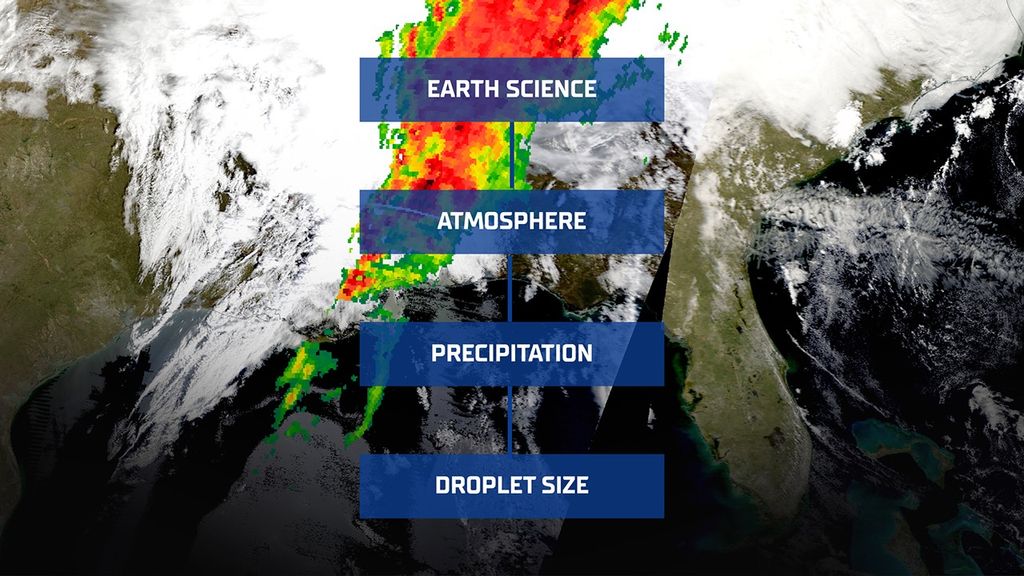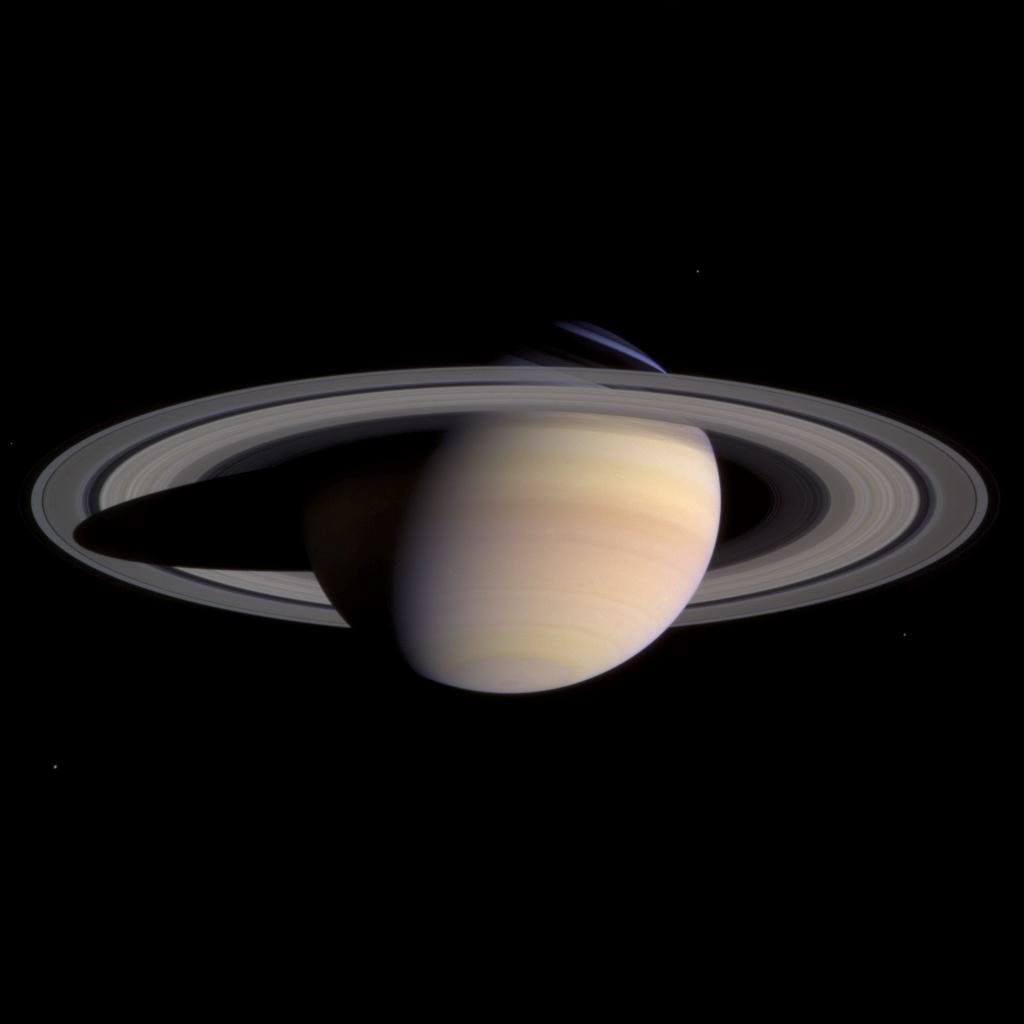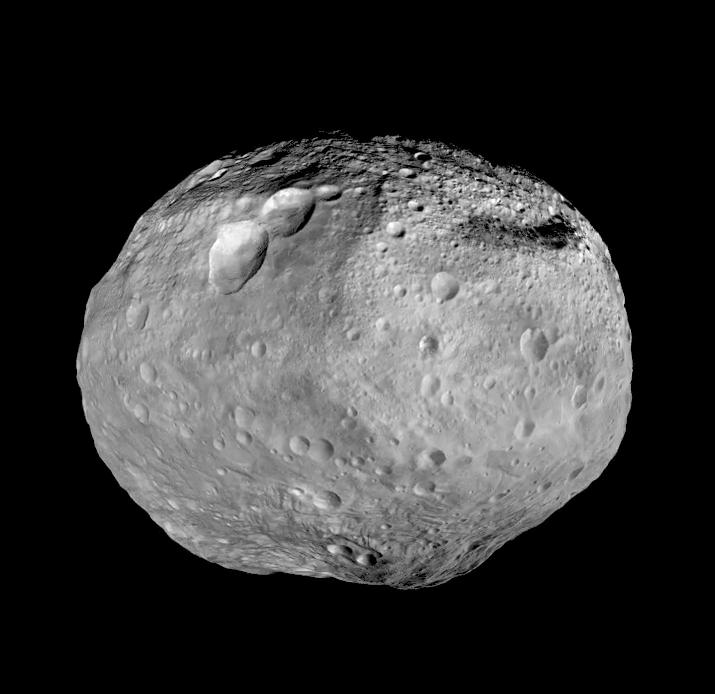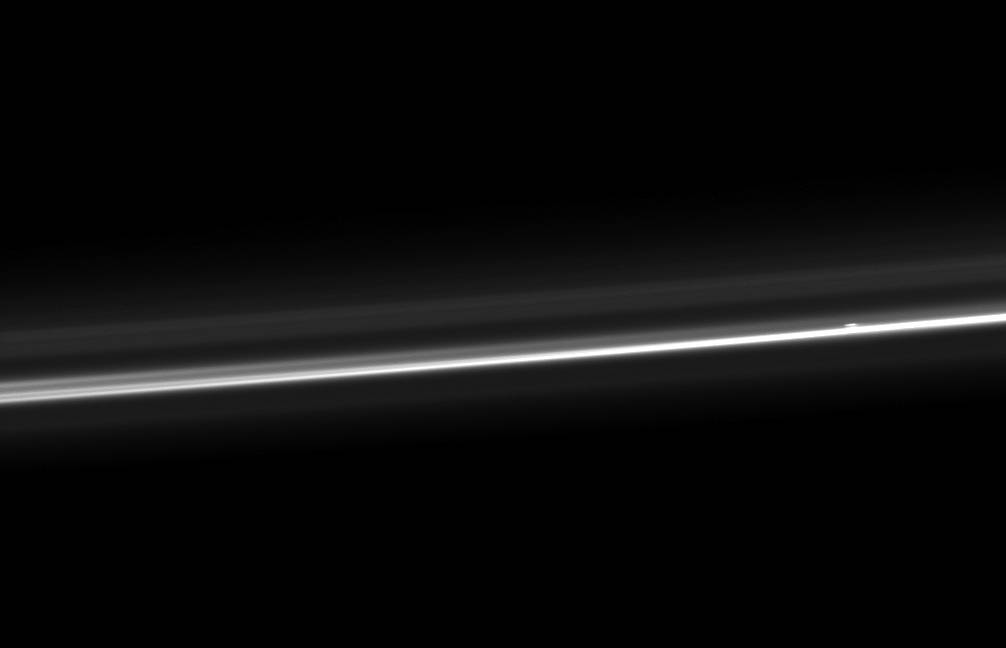The Cassini spacecraft captures Saturn’s ever-changing F ring, showing its bright core, another strand of ring material, and a breakaway clump of material close to the core.
The F ring core is the brightest strand that stretches across this image. The clump is the bright, short linear feature adjacent to the core near the right side of the image.
This view looks toward the sunlit side of the rings from about 19 degrees above the ringplane. The image was taken in visible light with the Cassini spacecraft narrow-angle camera on Aug. 13, 2012. The view was obtained at a distance of approximately 217,000 miles (349,000 kilometers) from Saturn and at a Sun-Saturn-spacecraft, or phase, angle of 113 degrees. Image scale is 1 mile (2 kilometers) per pixel.
The Cassini-Huygens mission is a cooperative project of NASA, the European Space Agency and the Italian Space Agency. The Jet Propulsion Laboratory, a division of the California Institute of Technology in Pasadena, manages the mission for NASA’s Science Mission Directorate, Washington, D.C. The Cassini orbiter and its two onboard cameras were designed, developed and assembled at JPL. The imaging operations center is based at the Space Science Institute in Boulder, Colo.
Image credit: NASA/JPL-Caltech/Space Science Institute
1 min read

























